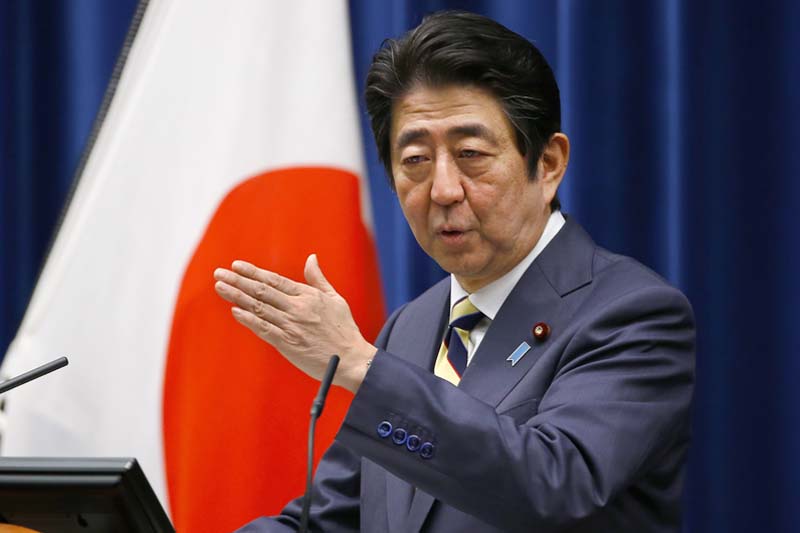Investors wary of Abenomics success as growth cools
Tokyo, February 9
When Japanese Prime Minister Shinzo Abe launched his three-pronged programme to revive Japan's stagnant, deflationary economy three years ago, the stock market cheered every step along the way. Not any more.
The 'third arrow' of Abenomics — reforms to make the economy more productive — is barely a work in progress, but Abe got straight to work on the first two, fiscal expansion and monetary stimulus, with the enthusiastic support of a new Governor at the Bank of Japan (BoJ), Haruhiko Kuroda.
In the first year of the programme, the Nikkei index jumped nearly 60 per cent, drawing in a net 15 trillion yen of foreign cash. Enthusiasm for Governor Kuroda's bold stimulus, in particular, was strong, with each of his first two money-printing announcements prompting a seven per cent weekly surge.
His decision last week to introduce negative interest rates was equally bold, and quite unexpected, but as Abe’s arrows have sailed wide of their target, investors have sat on their hands.
Many economists expect the last quarter’s GDP data, due later this month, to show a contraction, the fifth in the last nine quarters.
“Negative rates will do little to enhance prosperity and economic growth,” said Michael Kretschmer, chief investment officer at Pelargos Capital in Hague, the Netherlands.
Some investors are pinning their hopes on Abe’s third arrow, structural reforms such as addressing labour market rigidity. But they are not holding their breath.
“Real economic reform will only make a difference in the longer term. So I can only hope that the Abenomics doesn’t lose momentum,” said Hannah Cunliffe, senior portfolio manager at the Union Investment in Frankfurt.






